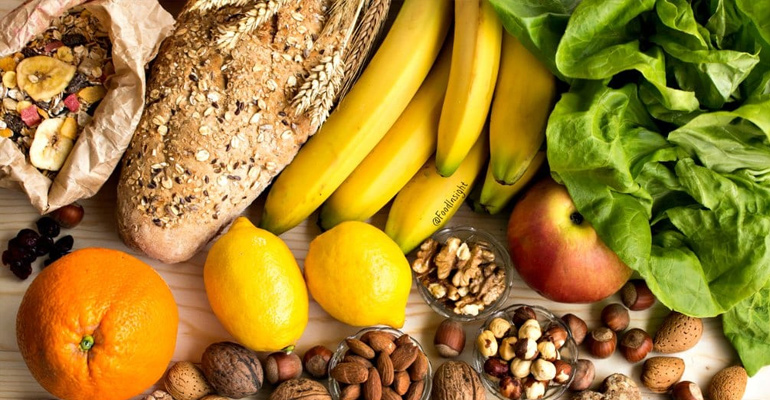
Essential vitamins and minerals
Vitamins and minerals are essential to good health.
They prevent disease, and help us feel energetic and healthy.
Whole, minimally-processed foods like vegetables, fruits, nuts, seeds, legumes, whole grains, dairy, and animal proteins are rich sources of vitamins and minerals. Our bodies rely on them to support normal physical functions like digestion, reproduction, growth, and energy production.1,2
Some nutrients can be created in the body ,but some can’t.
So we have to get our vitamin and mineral requirements from nutritious foods (or supplements), eaten regularly.
Sometimes, if diet quality or calorie intake is low, we don’t get enough of a vitamin or mineral to meet our body’s needs
we can develop a deficiency.
Here are the most common vitamin deficiencies
Vitamin B6 , Vitamin B12, Vitamin C, vitamin D and Iron
Deficiencies are particularly common among certain populations:
• The elderly,
• Women (aged 20-50), athletes , people with darker skin
• Chronic dieters or people who struggle with disordered eating
• , or those who undergo strict diets
• People who have financial challenges to shop fresh and nutritious foods
Lets illustrate here about the vitamins mentioned above and check deficiency symptoms and food sources.
Vitamin B6
is essential for nervous and immune system function
Deficiency: Symptoms include inflammation of skin and digestive system, sleeplessness, nervousness, depression, irritability, and anemia.
Vitamin B6 Food Sources: Whole wheat, brown rice, green leafy vegetables, sunflower seeds, potato, beans, banana, , spinach, walnuts, peanut butter, tuna, salmon, chicken.
Vitamin B12
is involved in DNA synthesis, and also helps to form and maintain healthy blood and nerve cells.
Deficiency of vitamin b12 causes anemia and mouth inflammation
Vitamin B12 Food Sources: Liver, salmon, tuna, eggs, and , dairy.
Vitamin C (Ascorbic acid)
Vitamin C is probably most famous for its role in supporting the immune system. However, it also helps build collagen, keeping skin and joints healthy;
Vitamin C Deficiency: Symptoms include dry hair, skin, and eyes, bleeding, hair loss, joint pain, delayed healing of wounds , and bone fragility.
Vitamin c resources : colorful fruits and veggies like bell peppers , lemon and oranges .
Vitamin D
Vitamin D helps with calcium absorption, immune system function, and regulating glucose tolerance.
Vitamin D Deficiency: In children a vitamin D deficiency results in rickets, delayed growth, and soft teeth. In adults a vitamin D deficiency can result in tooth decay and low bone density. People with darker skin are at higher risk of deficiency.
Vitamin D Food Sources: the most available and “natural” source of Vitamin D is from sunlight. It’s also in mushrooms, salmon, sardines, shrimp, egg yolks, and beef liver.
Iron
Iron helps to form hemoglobin and blood vessels. It’s essential for helping transport oxygen throughout the body Consume iron with vitamin C to enhance absorption.
Iron Deficiency: Low iron can lead to anemia and lowered immunity. Iron deficiency is the most common deficiency in the world. Menstruating women, pregnant women, and strict plant-based eaters are most at risk.
.
Iron Food Sources: Red meats, molasses, kidney beans, , brown rice, green leafy vegetables, pumpkin seeds, dark poultry meat and fish
Conclusion:
eating a wide variety of fruits, healthy carbs, veggies , lean protein and healthy fats is one of the major pillars that will provide you with the vitamins and minerals needed to enjoy a healthy nourished life.
.





